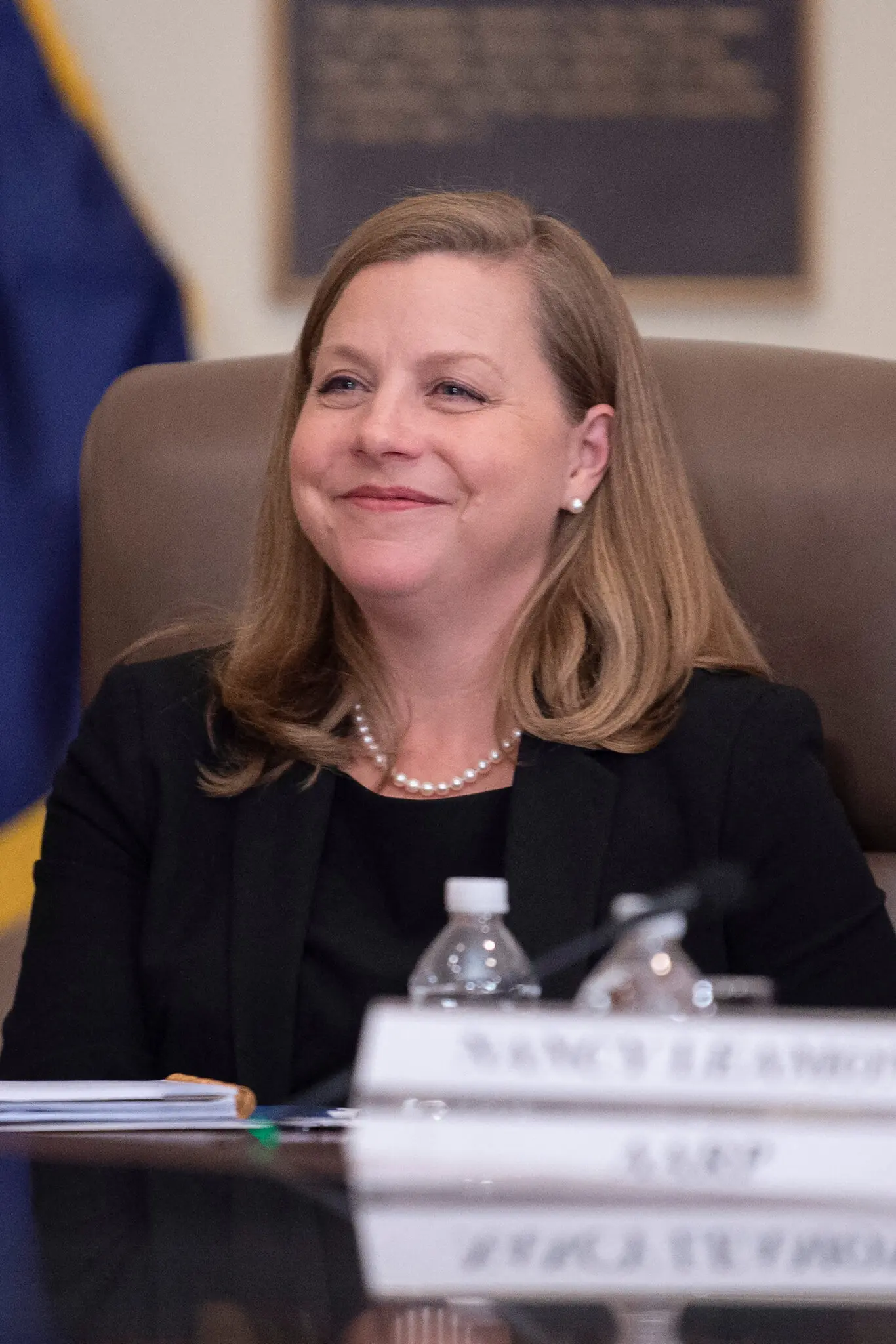President Donald Trump has announced his selection of Federal Reserve Governor Michelle W. Bowman as the next Vice Chair for Supervision at the Federal Reserve. This critical appointment places Bowman at the helm of financial regulation in the United States, a role often referred to as “Wall Street’s top cop.” If confirmed by the Senate Banking Committee, her leadership could signal a notable shift in regulatory approaches for the financial industry.
Who Is Michelle Bowman?
Michelle Bowman has been a prominent figure at the Federal Reserve since her initial appointment to the Board of Governors during Trump’s first term in office. Before her tenure at the Federal Reserve, Bowman served as a state bank commissioner in Kansas and worked in community banking, offering her firsthand insight into local and regional financial systems. She also gained federal experience as an adviser for the Department of Homeland Security during the George W. Bush administration. This unique combination of roles has shaped her regulatory philosophy, which leans toward easing some of the stringent oversight policies that large banks have faced in recent years.
A Shift in Regulatory Philosophy
Bowman’s appointment is poised to usher in a more lenient, industry-friendly regulatory environment, especially when compared to her predecessor, Michael S. Barr. Barr, appointed during the Biden administration, championed stricter oversight of major financial institutions, including higher capital requirements for lenders like JPMorgan Chase and Goldman Sachs. Bowman, in contrast, has publicly opposed such measures and advocated for less burdensome regulations.
Bowman has also expressed support for making the Federal Reserve’s stress tests for banks more transparent. Stress tests are an essential mechanism used to ensure that financial institutions can withstand economic shocks. However, banking lobbying groups have sued the Fed over the opacity of these assessments. Bowman’s alignment with industry calls for increased transparency may pave the way for reforms that are more agreeable to Wall Street and large financial institutions.
The Implications of a “Hands-Off” Approach
Bowman’s inclination towards a more relaxed regulatory framework has sparked both optimism and concern. Proponents, particularly from within the banking industry, argue that reducing regulatory overhead allows financial institutions to operate more efficiently, enabling them to offer better services to consumers and compete globally.
Critics, however, caution against potential risks to financial stability, recalling the 2008 financial crisis, which many attribute to inadequate regulation. They argue that less oversight could increase systemic vulnerabilities and lead to another economic catastrophe.
Her leadership will be critical to balancing the goals of economic growth and financial stability. Given her history of dissenting views on significant Federal Reserve decisions, Bowman will likely continue to challenge traditional approaches to regulation and monetary policy.
A Broader Role in Monetary Policy
Although primarily known for her stance on financial regulation, Bowman has also made waves in monetary policy debates. Most notably, she was the sole dissenter during a Federal Reserve meeting in September, where she opposed a larger-than-usual half-point rate cut. She viewed such aggressive action as a “premature declaration of victory” against inflation. Her cautious approach suggests she will advocate for tempered monetary policy steps, particularly in light of concerns over inflation stability.
The Road Ahead
Michelle Bowman’s confirmation by the Senate Banking Committee will be closely watched by financial professionals, policymakers, and the banking sector. If confirmed, her tenure as Vice Chair for Supervision will likely shape the regulatory landscape for years to come, affecting everything from Wall Street’s operations to the broader stability of the U.S. economy.
Her appointment also comes at a time when significant leadership transitions are expected within the Federal Reserve. President Trump could have additional opportunities to influence the Fed’s direction, with Governor Adriana D. Kugler’s term expiring next year and Chair Jerome H. Powell’s term ending in May 2026 (though Powell may continue as a governor until 2028).
Final Thoughts
Michelle Bowman’s nomination reflects a clear intention by the Trump administration to shift financial regulation in a direction more favorable to Wall Street. Her potential confirmation as Vice Chair for Supervision will likely bring fundamental changes to how the nation’s largest financial institutions are governed.
While her history shows a commitment to easing restrictions on the banking sector, the task ahead is complex. Bowman must balance the competing interests of fostering economic growth, maintaining stable financial systems, and safeguarding against risks that could destabilize the U.S. economy. Her approach will undoubtedly impact not just the financial industry, but also the broader economic landscape for years to come.








